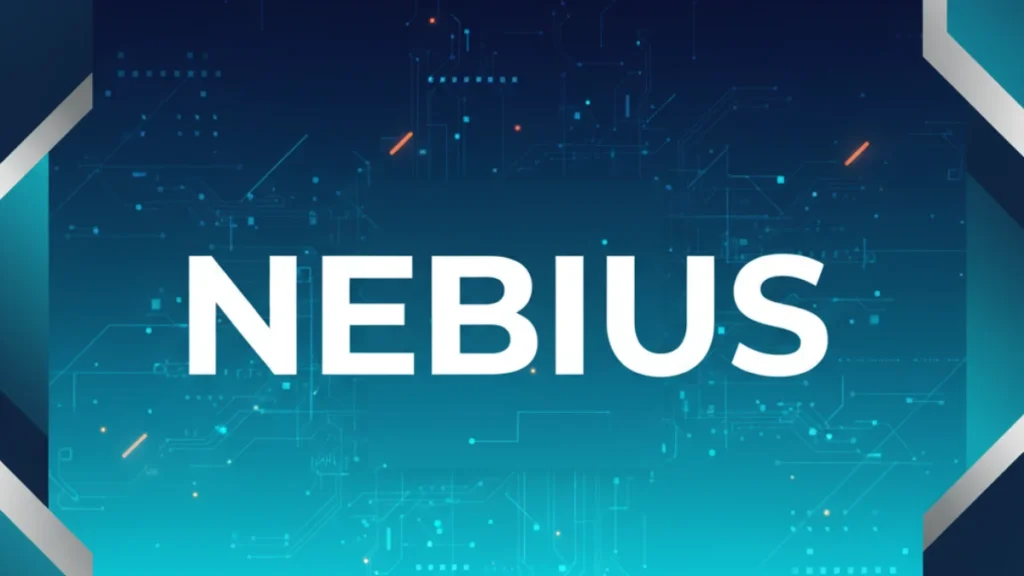Microsoft has struck a multi-year deal with Amsterdam-based Nebius to expand its U.S. AI computing capacity through a new data center in New Jersey.
The agreement signals a shift in how hyperscalers like Microsoft manage the AI boom: outsourcing infrastructure growth to specialized firms instead of footing the entire bill themselves.
Key Takeaways
- Microsoft signs multi-year AI data center deal with Nebius in New Jersey.
- Nebius will finance expansion using Microsoft-backed cash flow and debt.
- Hyperscalers outsourcing AI compute to manage $200B+ infrastructure race.
- Nebius targets 1 GW energy capacity by 2026 to beat grid bottlenecks.
- Energy access overtakes real estate as key challenge in AI expansion.
Microsoft has partnered with Nebius to supply AI infrastructure from a new data center in Vineland, New Jersey, beginning operations later this year. The deal highlights a shift in cloud strategy as hyperscalers outsource AI infrastructure growth, while Nebius targets 1 GW power capacity to meet soaring AI demand.
Announcing a major new agreement with @Microsoft for AI infrastructure. This means significantly more aggressive growth of our AI cloud business in 2026.
— Nebius (@nebiusai) September 8, 2025
We’ll deliver the capacity from our new data center in Vineland, NJ, starting late 2025. Read more: https://t.co/bTfWtp9Cfc
Microsoft and Nebius Strike Landmark AI Deal
Microsoft has signed a multi-year agreement with Amsterdam-based Nebius Group N.V., a Nasdaq-listed AI infrastructure provider backed by Nvidia and Accel, to expand artificial intelligence (AI) data center capacity in the United States.
The deal centers on a newly constructed data center in Vineland, New Jersey, slated to come online later this year. Once operational, it will deliver large-scale AI computing power directly to Microsoft.
A Financing Model Built on Microsoft’s Backing
Nebius is financing the expansion with a mix of cash flow from the Microsoft contract and debt secured against the agreement. This structure leverages Microsoft’s credit rating, enabling Nebius to raise capital more efficiently than many rivals.
The company reported a stunning 625% year-over-year revenue increase in Q2 2025, with $105.1 million in earnings. By year’s end, Nebius expects to reach an annualized revenue run rate between $900 million and $1.1 billion.
Analysts note the financing model could become a template for AI infrastructure growth, where long-term hyperscaler contracts serve as collateral for debt financing in capital-heavy markets.
Why Hyperscalers Are Outsourcing AI Compute
Microsoft’s deal with Nebius reflects a broader shift across the industry. Tech giants like Microsoft, Google, and Amazon are outsourcing portions of their AI compute demand to specialized firms, rather than absorbing the full cost and complexity of building every facility themselves.
Industry projections suggest global AI infrastructure spending will surpass $200 billion by 2028 — driven by generative AI, foundation models, and training-intensive workloads. For hyperscalers, partnerships provide flexibility to scale while shifting financial risk.
The Power Problem: AI’s New Bottleneck
Beyond financing, the AI arms race is increasingly about power. AI workloads can consume up to four times more energy than traditional computing. A survey of 120 data center executives found grid capacity and electricity supply have overtaken real estate and construction as the industry’s number-one challenge.
Nebius is targeting over 1 gigawatt (GW) of power capacity by 2026, enough to power 750,000 homes. This scale, executives argue, will give it an edge in a market where energy availability — not land or money — is the scarce resource.
Industry Signals and Market Reaction
Investors have taken note of Nebius’s rapid growth, with the company positioning itself alongside U.S. peers like CoreWeave as a key AI infrastructure provider. By securing long-term contracts with Microsoft, Nebius strengthens its balance sheet and global profile.
For Microsoft, the move comes as part of its broader AI expansion strategy, following heavy investments in OpenAI and Azure AI services. Access to Nebius’s power-secured infrastructure could help Microsoft keep pace with rivals as model sizes, training runs, and customer demands surge.
The Bigger Picture
The Nebius-Microsoft partnership represents more than one data center project. It’s a case study in how the AI economy is restructuring financing, energy access, and cloud strategies.
Instead of going it alone, hyperscalers are tapping specialized players to carry the capital burden — while still locking in guaranteed compute supply. That balance could define the next decade of cloud competition.
Conclusion
Microsoft’s bet on Nebius shows how the AI infrastructure race is evolving: outsourcing, debt-backed financing, and an all-out battle for power capacity. As workloads grow more energy-hungry and costs balloon, partnerships like this could become the new normal.
Also Read
- Cognition AI’s $400M Round Lifts Valuation to $10.2B, Fuels Growth
- Ohio Universities race to adopt AI policies before 2026 state deadline
